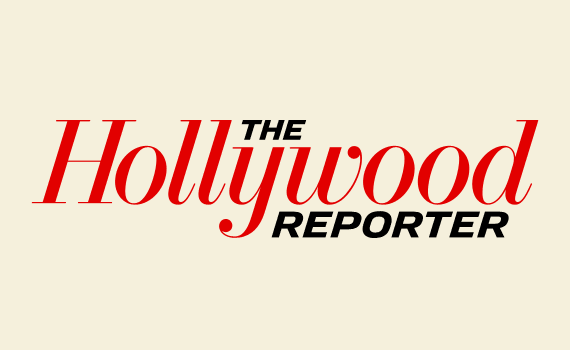This past Thursday The Hollywood Reporter published the first review of Oz the Great and Powerful, Disney’s latest sci-fi/fantasy excursion directed by Sam Rami. Although Oz will not be released until this Friday (March 8) film critic Todd McCarthy and his respective outlet felt compelled to release their column before any other publication.
Unfortunately, this negative review of Oz is just another example of large-circulation publications breaking the system of embargoes.
For those unaware of what an embargo entails, allow me to fill you in. Each week press screenings are held for reputable outlets fortunate enough to be granted access to upcoming movies. Each film critic who attends these events must first agree to the studios’ terms: most of which explicitly note to hold your review of the movie till the night before or the day of, the film’s release.
The unspoken truth of embargoes is that just about no one follows them. We agree to these terms before the movie, for our own personal benefit. But once the credits begin to roll and we go home, we break our promise, our word. We pen these early reviews, and then publish them days before the embargo permits us to do so. This is something outlets of all nature – big or small, mainstream or independent – take part in. Accepting the terms then subsequently breaking them. This is the cyclical cycle that occurs each week; and no one seems to want to break that cycle.
Whether you agree with the effectiveness or purpose of embargoes is irrelevant. As Film.com critic Eric D. Snider astutely reminds us “The studios don’t have to screen the films at all. We either agree to their terms, however dumb, or we don’t watch.”
But embargoes have only become silly and useless because the studios have allowed them to. The fact of the matter is The Hollywood Reporter, The New Yorker (anyone remember David Denby and The Girl with the Dragon Tattoo?), and just about every other major outlet will continue to behave this way until there are consequences for their actions. Until there are repercussions, we will continue to perpetuate and allow reckless journalism.
Admittedly, I’ve been a party to this brazen behavior, and I say so with much regret. The implementation of embargoes ignites an ongoing battle for many journalists (myself included): preserve our journalistic mores or succumb to temptation for the sake of staying competitive.
The reality is, we either need to eradicate the system of embargoes in its entirety, or consistently uphold them. That means punishment for those who break embargoes – no matter how noted or respectable that outlet may be.
Then again, Hollywood has never been much of a proponent of balancing the playing field.
Lets try to remember that without our word, written or spoken, we are nothing.




















14 thoughts on “Embargoes, Journalism Mores, and The Hollywood Reporter’s Early Review of Oz the Great and Powerful”
It’s particularly galling in this case because McCarthy seems to be in the minority in his negative view of the film but his is the only voice out there, spreading bad word-of-mouth. If Disney have any sense they’ll lift the embargo immediately.
Rotten Tomatoes shows that at least 10 reviews have been written and added to their system.
There’s ten on there now but McCarthy’s was the first and he’s still the only “top critic” with a review. I actually wrote a comment on the HR review, critizising their breaking of the embargo and it was almost immediately removed (no surprise).
Haha, that doesn’t shock me.
Nice piece, Sam. Interesting thoughts…
I don’t really go to press screenings that often, and the ones I’ve been too have been for quite small films with no mention of any kind of embargo. Personally, I’d like to believe that if there was an embargo then I’d adhere to it. If I’m lucky enough to see a movie early, then I’d probably pay the courtesy of not publishing a review until the time specified (which is when I’d imagine there’d be the most traffic anyway). It amazes me that there doesn’t seem to be any kind of reprimand for people who break the embargoes though! You’re right, there should be consequences, or else I don’t think I see the point of them at all!
Thanks for reading Ruth. Hopefully the article didn’t come off as me being superior — I’ve published reviews before the embargo date.
I agree with your conclusion, obviously, that the embargo system should either be dropped or enforced across the board… but I don’t see either option happening. Studios will never lay down the law with the trades, and they’ll never give up the illusion that they have control.
The trades (HR and Variety) have been breaking embargoes for as long as they’ve been implemented, and the studios have done nothing. What’s the incentive to change if the little guys simply roll over and follow their terms blindly? The solution is to simply reign in the time frame within which screenings are held… show the films to everyone in the week or two leading up to the film’s release and they can publish whenever they want. No muss no fuss.
But labeling embargo-breaking reviews as “reckless journalism”” is a bit silly and extreme. Reckless journalism is fudging facts, lying to readers, exposing sources, etc. Breaking an invisible and neutered embargo line, under the current situation, is no more severe than using an Oxford comma. Probably less actually.
That said, if a studio were to ban me from their press screenings for breaking an embargo I wouldn’t fight it. It’s their rule, and like Eric says it’s one I agreed to… but that doesn’t mean we should all simply accept the idiotic status quo without a fight. Just imagine if Rosa Parks had obeyed the embargo line at the back of the bus… boom!*
*That analogy offered as another example of reckless journalism.
Don’t you think its a bit reckless and inconsiderate for a publication to agree to terms and then proceed to break them?
Love the Rosa Park reference. I now remember that moment when a journalist made a terrible analogy. Good times.
Not these terms, no. The studios don’t take them seriously so why should I? To be clear, I don’t make a habit of breaking embargoes, but it happens. More often than not though the studio actually moves up the goal posts as Rotten Tomato fills up with those who broke the original date, and in some cases we’ve actually contacted the studio reps and gotten permission to post early when others already have.
Out of curiosity, do you ever bring your phone in to a screening when the invite says no phones allowed? Or tweet your thoughts after a screening, even vague ones, when the invite says no twitter/social media?
I occasionally leave the phone in the car, but I typically bring it in. Purely because the local reps allows us to. They’ve always said it’s ok, and even some of the security guards know critics can bring in their phones (not to mention some invites don’t ask us to leave our phones outside.
As for tweeting … almost never. I have before, surely. But it’s not likely.
I’m not condemning you for publishing your review early Rob. I’ve done it before too. It’s essentially the only way to stay competitive.
Oh I know you’re not condemning me Sam, and I haven’t meant for any of this to come across as angry or too-serious, so apologies if that’s the case. This whole thing is just so incredibly unimportant in the grand scheme of things.
But my OZ review has not posted yet, in case that’s what you were referring to.
I figured this discussion was a matter of life and death.
I figured as much judging by the dramatic closing line on the post.
Miss you Sam!
Have to end with a boom … or a whimper …